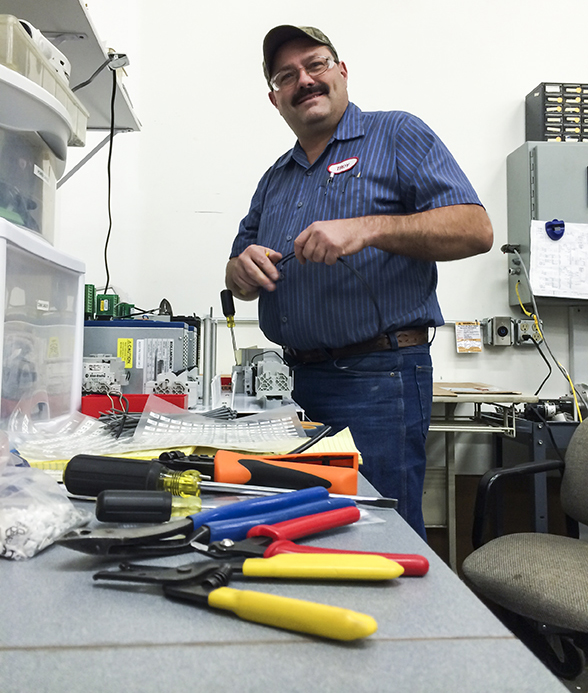Troy Erdman has been an electrician for more than 30 years. Throughout his career, he has installed equipment all across the US for a number of companies. No matter where he worked, however, he kept his tools within his sight around the clock. “My tools are my livelihood,” he explained. “I never felt comfortable leaving them, not knowing where they were.”
Then five years ago, Troy joined Accraply, a Barry-Wehmiller division, in Minneapolis, MN. At the end of his first day on the job, his leader said to him, “You are welcome to leave your tools here tonight.”
Troy thought back to that day and said, his voice trembling with emotion, “I had only spent one day with these people but, for the very first time in my career, I left my tools overnight.

“I had never experienced anything like that before. There’s a lot of trust and mutual respect and consideration here, more than any other place I’ve worked.”
Creating a high trust organization is an important role for any business leader. At Barry-Wehmiller, we believe trust is foundational to fostering an environment which brings out the best in our team members, allowing for teams and individual to have meaningful roles. The best performing and most fulfilled teams are ones with a high degree of mutual trust between team leaders and team members.
Leaders trust team members will share their gifts and talents and be self-motivated to act responsibly, with consideration for how their actions will affect others around them as well as their own work. Team members trust that their leaders will give them the tools and support they need to do their best work. This means the freedom to try things and make mistakes without fear of repercussion. When a partnership of trust like this is established, great things can happen.
For Troy, this environment of responsible freedom [Is Your Leadership Making People Lazy?, Jul. 18, 2013] fostered throughout Barry-Wehmiller has made it a very rewarding experience. “I am given a loose leash which I appreciate. I have the freedom to make the decisions each day as to the best way to accomplish what I need to accomplish.
“That’s not to say that my leader doesn’t put pressure on me. He does, but it is done in a positive way. It’s like he’s saying ‘I know how much you have contributed. So, what’s next?’ That’s very flattering. It encourages me to want to work even harder.”
Five years into the job and Troy still feels the high degree of trust and respect he sensed that first day. He believes it creates a more positive, uplifting and productive environment. “I am not a morning person. Before I began working at Accraply getting up for work was a chore. Now it’s something I look forward to. It feels good to accomplish things by working together.”
Trust is a rare commodity these days. A Gallup poll from earlier this year showed that Americans’ confidence in Congress was the lowest since it began polling in 1973: only 10% of people said they had a “great deal of” or “quite a lot of” confidence in the organization. Interestingly enough, HMOs and big business weren’t far behind.
If Gallup polled your team members about the level of trust they felt, what would your score be?